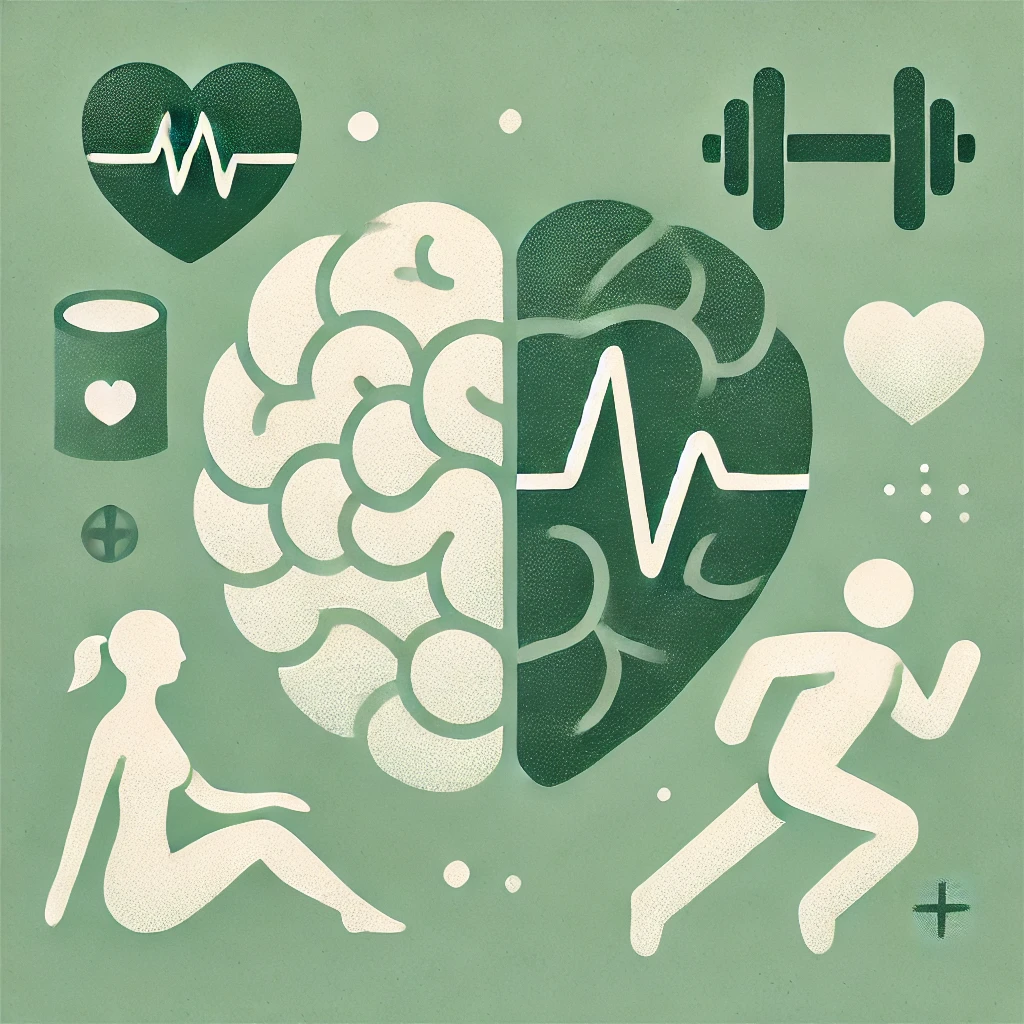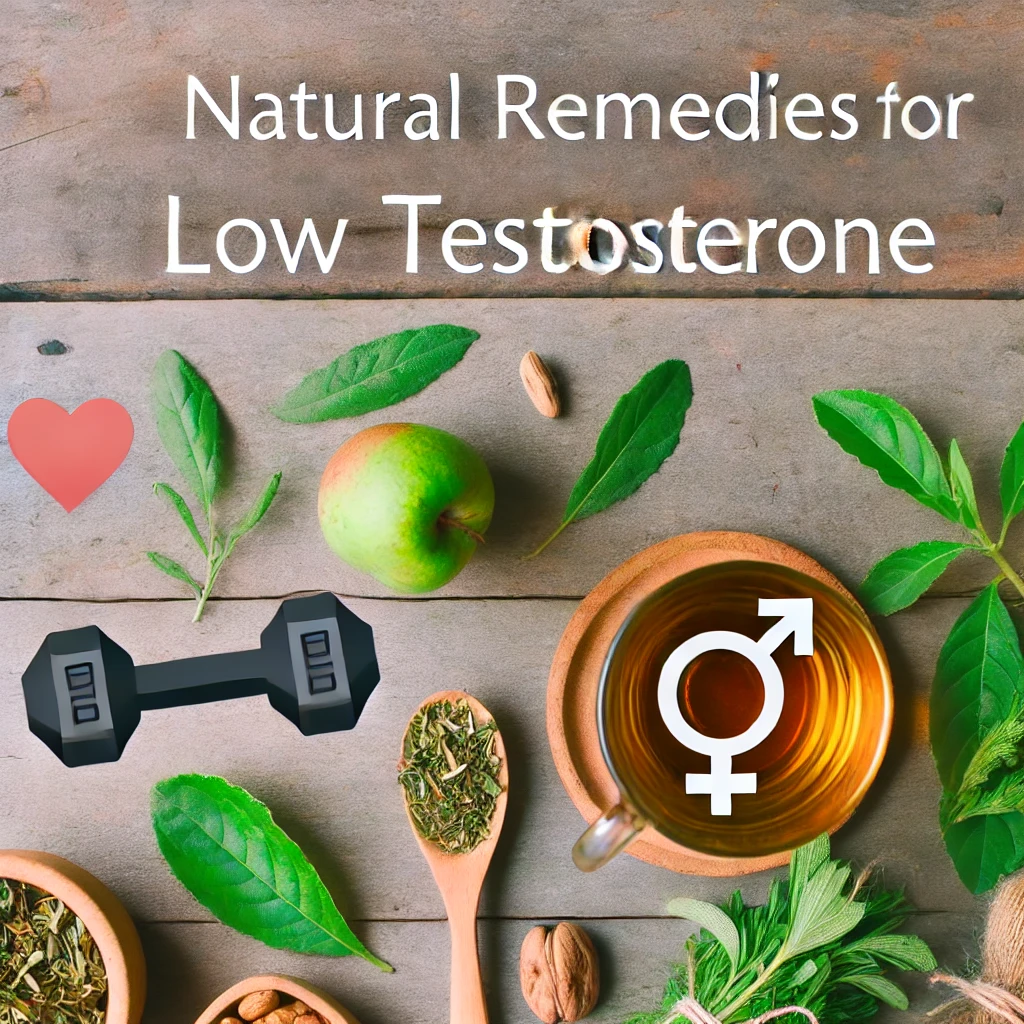
If you’re dealing with low testosterone, common suggestions often include prescription meds, hormone injections, or intricate treatments. But what if you’re looking for a natural route to address low testosterone? Maybe you’re interested in how lifestyle adjustments and natural remedies for low testosterone could support and enhance your testosterone levels.
This guide is for those who want to address low testosterone at its core and explore holistic, natural methods. No instant solutions or miracle pills just practical, effective tips designed to make a lasting difference in your health and energy.
Understanding Low Testosterone and Why It Matters
Testosterone is often linked to masculinity, strength, and libido. While it’s certainly essential for male sexual health, testosterone also significantly contributes to overall wellness in both men and women. This hormone influences:
- Muscle mass and strength
- Bone density
- Fat distribution
- Energy levels
- Mood and mental well-being
When testosterone levels decline whether from age, lifestyle factors, or health conditions, these areas can suffer. This can lead to symptoms like constant fatigue, muscle loss, reduced libido, and even mood changes. Low testosterone isn’t merely a “men’s issue”; it’s a broader wellness concern.
Here are the Top 10 Natural Remedies for low testosterone :
1. Exercise: Boosting Testosterone with Movement

One commonly overlooked factor in boosting testosterone levels is the role of regular exercise. But not just any exercise ,certain types of workouts are particularly effective natural remedies for low testosterone, helping to naturally stimulate testosterone production.
Heavy Lifting and Resistance Training
Research indicates that lifting heavy weights, especially using compound movements like squats, deadlifts, and bench presses, is highly effective for increasing testosterone. Resistance training promotes muscle growth and also activates the endocrine system, encouraging testosterone production.
High-Intensity Interval Training (HIIT)
HIIT, which combines short, intense bursts of exercise with rest periods, has been shown to boost testosterone levels as well. The appeal of HIIT is its efficiency; it’s a time-effective workout adaptable to a range of fitness levels.
2. Sleep: Your Testosterone Recharges While You Do

Sleep is a powerful, often overlooked natural remedies for low testosterone. During deep sleep stages, your body carries out crucial repair work and produces hormones, including testosterone. In fact, most testosterone release occurs during REM sleep.
Lack of quality sleep and sleep deprivation elevate cortisol—the stress hormone that can inhibit testosterone production. Aim for 7-9 hours of sleep each night, and create an environment that promotes restful sleep: keep your bedroom dark, cool, and quiet.
3. Dietary Adjustments: Fueling Your Testosterone Naturally

Your diet significantly influences hormone regulation, and some foods can support testosterone production while others may hinder it. Here are some natural remedies for low testosterone through dietary adjustments to consider:
Healthy Fats for Hormone Health
Healthy fats, found in foods like avocados, olive oil, and nuts, supply the cholesterol needed for testosterone synthesis. Incorporating sources of monounsaturated and polyunsaturated fats into your diet can support optimal hormone levels.
Zinc-Rich Foods
Zinc is crucial for testosterone production. Foods such as pumpkin seeds, chickpeas, and shellfish are rich in zinc. Research indicates that even a mild zinc deficiency can lower testosterone levels.
Vitamin D: The Sunshine Vitamin
Vitamin D has a notable impact on testosterone. Aim to get about 15-30 minutes of sunlight daily for natural vitamin D. If sunlight exposure is limited where you live, a vitamin D supplement may be beneficial.
4. Herbal Remedies: Nature’s Helpers for Testosterone Boosting

Several herbs are recognized for their potential to naturally support testosterone levels, making them effective natural remedies for low testosterone. Here are a few noteworthy options:
Ashwagandha
This adaptogenic herb, long used in Ayurvedic medicine, has been shown to boost testosterone and support reproductive health. Ashwagandha also reduces cortisol levels, which can, in turn, positively influence testosterone production.
Fenugreek
Traditionally used to enhance libido, fenugreek seeds may also aid testosterone production, according to some studies. Including fenugreek in your diet or taking it as a supplement could help maintain healthy testosterone levels.
Tribulus Terrestris
This plant is often used in traditional medicine to address low libido and infertility. Some research suggests it may encourage testosterone production, making it a popular natural choice for hormonal support.
5. Stress Management: Cutting Down Cortisol, Lifting Up Testosterone

Stress triggers the release of cortisol, which can directly lower testosterone levels. Chronic stress is a frequently overlooked factor contributing to low testosterone.
Mindfulness and Meditation
Practices like meditation and mindfulness are powerful tools for reducing stress. They lower cortisol levels, which can, in turn, help stabilize testosterone.
Breathwork and Yoga
These methods support stress management and improve overall physical well being. Yoga, especially, can help balance hormones and ease stress, making it beneficial for those aiming to support healthy testosterone levels.
6. Limit Alcohol and Avoid Environmental Toxins

Alcohol and environmental toxins can significantly interfere with testosterone production, so reducing exposure to these factors can be a helpful strategy for naturally supporting testosterone levels.
Moderate Alcohol Consumption
Research indicates that heavy, consistent alcohol intake can lower testosterone levels, particularly when consumed frequently. Alcohol affects the liver’s ability to metabolize hormones, leading to imbalances that may suppress testosterone. To support optimal hormone health, consider limiting alcohol to occasional, moderate consumption. Substituting with options like herbal teas, sparkling water, or infused water can be refreshing alternatives without the hormonal drawbacks.
Avoiding Endocrine Disruptors
Everyday products often contain chemicals that can interfere with hormone production and regulation. Known as endocrine disruptors, these substances found in pesticides, certain plastics, and various personal care items can mimic or block hormones, potentially lowering testosterone. Common disruptors include parabens and phthalates, which are found in some skincare and plastic products. Opt for organic foods to avoid pesticide exposure and select personal care products labeled as free from parabens, phthalates, and BPA. Small steps, like switching to glass containers and choosing natural cleaning products, can help reduce your overall exposure to these harmful chemicals.
7. Maintaining a Healthy Weight

Excess body fat, especially around the abdominal area, is closely associated with lower testosterone levels. This is because fat cells can convert testosterone into estrogen, which can further reduce testosterone levels. Maintaining a healthy weight can naturally support hormone balance and promote optimal testosterone levels.
Intermittent Fasting
Intermittent fasting alternating between periods of eating and fasting has shown potential benefits for hormone regulation, including testosterone production. Some studies suggest that fasting may increase luteinizing hormone, which plays a role in testosterone synthesis. Additionally, intermittent fasting can help with weight management, reducing body fat that may otherwise contribute to hormonal imbalance. However, it’s important to remember that fasting isn’t suitable for everyone, so consulting a healthcare professional is recommended before making significant dietary changes.
Fiber Rich Diet
A diet high in fiber can aid in blood sugar regulation and enhance insulin sensitivity both essential for maintaining balanced testosterone levels. Insulin resistance, often linked to poor diet and weight gain, can negatively impact testosterone. By focusing on fiber-rich foods such as whole grains, vegetables, fruits, and legumes, you support not only your gut health but also a stable hormonal environment. These foods help manage blood sugar spikes and promote a healthy weight, creating a foundation for balanced testosterone levels.
8. Supplements for Natural Testosterone Support

In addition to lifestyle and dietary adjustments, certain supplements are among the best natural remedies for low testosterone, helping to support hormonal balance and overall vitality
Magnesium
Magnesium plays a vital role in numerous bodily functions, including muscle and nerve function, energy production, and hormone regulation. Studies suggest that magnesium supplementation may improve testosterone levels in individuals with magnesium deficiencies, as it aids in optimizing testosterone’s bioavailability. Foods high in magnesium, such as leafy greens, nuts, and seeds, are excellent sources, but supplementation can be beneficial for those with lower levels.
D-Aspartic Acid
D-Aspartic Acid is an amino acid that may help increase testosterone, particularly in individuals with below-average levels. Some studies indicate that it can stimulate the release of certain hormones in the brain that are linked to testosterone production. However, results are mixed, so it’s best used under guidance, especially for those with specific testosterone concerns.
Fish Oil
Rich in omega-3 fatty acids, fish oil supports overall hormone health and reduces inflammation, both of which can positively influence testosterone levels. Omega-3s contribute to optimal cell membrane health, which is essential for hormone production and regulation. Including fish oil supplements or omega-3-rich foods like fatty fish, flaxseeds, and walnuts can provide a supportive boost to hormone balance.
9. Sunlight and Outdoor Time: Reconnecting with Nature

Sometimes, the simplest actions yield the most impactful results. Spending time outdoors can uplift your mood, decrease stress, and enhance vitamin D levels factors that all contribute to healthier testosterone levels. Just 20-30 minutes of sunlight exposure several times a week can lead to noticeable improvements. Sunlight stimulates natural vitamin D production, which is linked to testosterone support, and the time spent in nature can help alleviate stress, making it an easy yet effective way to boost overall well-being and hormone health.
10. Connecting and Engaging with a Supportive Community

Mental and emotional well-being are deeply connected to physical health. Engaging in a supportive community whether through hobbies, fitness classes, or social gatherings can significantly reduce stress and even positively influence hormone levels, making it one of the effective natural remedies for low testosterone
When we feel connected and supported, our body releases more “feel good” hormones, like oxytocin and serotonin, which help stabilize stress hormones and contribute to a balanced hormonal profile, including testosterone. Social interactions provide emotional resilience, reducing cortisol levels and creating an environment in which testosterone can be more effectively maintained.
Bringing it All Together
There you have it ,a thorough guide to natural remedies for low testosterone centered on realistic, sustainable changes. By combining diet, exercise, herbal supplements, stress management, and lifestyle adjustments, you’re adopting a holistic approach to support your body’s own testosterone production.
Remember, meaningful change takes time. These remedies won’t provide instant results, but by consistently practicing them, you’re not only supporting balanced testosterone but also enriching your overall health. Embrace the journey, trusting in your body’s natural resilience to lead the way toward greater well being.

